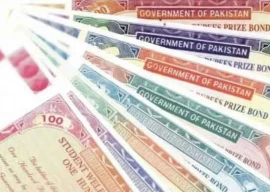
She also stressed the need for public-private partnership to increase exports of halal products. She was addressing the first global Halal Congress organised by the Trade Development Authority of Pakistan (TDAP) and Halal Development Council (HDC), a non-governmental organisation working for the development of the halal economy in the country.
“I hope today’s conference will help in drafting suggestions for future legislation,” she said.
Dr Mustafa Ceric, the grand mufti of Bosnia and Herzegovina, said that Muslims are consuming more and producing less — a trend that needs to change to make the future secure. He stressed that the halal industry can help Muslims all over the world in producing organic food which is equally popular among Muslims and others.
Nisar Ahmed Khoro, speaker of the Sindh Assembly and acting governor of Sindh, said that Pakistan needs to go a long way in matching other countries who have been working for halal certifications. Khoro praised the efforts of the public and private sectors in pursuing the concept of halal certification in Pakistan.
CEO TDAP Tariq Puri said that this is the first serious step in Pakistan towards halal certification. Halal certification adds value and allows the country to earn more from its present exports and since halal certification means quality. Pakistan should become the hub of halal goods and services because of its strategic position for the Arab world and Central Asian countries, he added.
Dr S Ali Khan, a director for Ethnic Focus, a UK-based research house said that if Pakistan wants to emerge as a leader in the trillion-dollar halal industry, then it will need technical knowledge, data insight, government commitment and public-private partnership among other requirements. He said that western multinationals want to reach Muslim consumers but need proper insight which Pakistan can provide to them.
“Pakistan needs to market itself as a committed player in halal certifications,” he added. He also informed that Muslim consumers are increasingly becoming brand aware which is why more and more large brands are localising themselves in different cultures.
Experts say that the halal industry is not limited to meat products only but it also includes cosmetics, pharmaceutical items and other services.
Published in The Express Tribune, December 5th, 2010.


1723278472-0/BeFunky-collage-(4)1723278472-0-165x106.webp)




1732486769-0/image-(8)1732486769-0-270x192.webp)









COMMENTS
Comments are moderated and generally will be posted if they are on-topic and not abusive.
For more information, please see our Comments FAQ